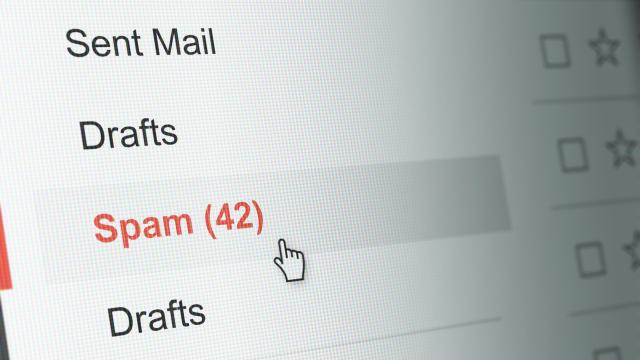While you might know that your emails are all worthy of a thorough read and should never be relegated to your recipient’s spam folder, there’s a good chance that some of them are ending up there anyway. And there are things you’re doing without realizing it that increase the chances your message never reaches its intended target. But before I get to the words and phrases that will throw red flags all over your email blast, newsletter, or pitch, there are a few ways you can shore up your account to enhance your emails’ deliverability.
First, if you’re using a subscriber list, you should regularly remove unengaged subscribers so you’re left with your most engaged base. A low open rate translates to a poor sender reputation, which essentially lowers your account’s clout among email service providers, according to Active Campaign, a platform for digital marketing and sales. If you’re mass-sending to a list, make sure your emails include an unsubscribe button, too. Per Hubspot, failure to have one is an easy way to get sent right to spam.
Be sure each email is addressed to its recipient, too. Anything that says “Dear friend” or just “Dear” is risky; something coded to include the name of the receiver is less so. Make sure all the codes you’re using actually work by sending a test email first and also be sure not to use all caps or unnecessary exclamation marks, which spam-detecting software will immediately flag. Finally, be sure you’re using a verified email address to send from, not one that is brand new or hasn’t been verified by you.
Avoid these spam trigger words in emails
Go look in your spam folder right now: There are likely to be clearly phony phishing emails with subject lines about sweepstakes, penis enlargement, and failed UPS deliveries. Those are in there not only because they come from unverified email addresses or addresses with low open rates, but because of the words in their subject lines and body copy. Per Active Campaign, having one or two spam-triggering words in an otherwise trustworthy message won’t likely send it to spam, but too many of them combined with other risk factors like the ones above probably will. Here are some words to avoid:
- Numbers like “#1” and “100% free”
- Words associated with easy money-making scams, like “additional income,” “earn extra cash,” “financial freedom,” or “be your own boss”
- Phrases associated with money like “cash bonus,” “cents on the dollar,” and “big bucks”
- Anything like “eliminate bad credit” or “consolidate debt”
- Anything “free,” like “free gift,” “free info,” or “free investment”
- “Giveaway” and other words used to suggest, again, that something is “free”
- Words that imply something is truly stupendous, like “once in a lifetime” or “miracle”
- Any phrase that creates a sense of urgency or pressure like “act now” or “important information regarding…”
- “You are a winner,” “you have been selected,” or anything else that might make someone think they’re receiving a special opportunity
- “Dear friend” or any greeting that isn’t specific to the person you’re writing to
- Basically any financial words that don’t fit in the context of your message, like “no hidden fees” or “no purchase necessary”
- Assurances that “this isn’t junk” or “this isn’t spam”
- The words “password” or “social security number”
- Name-brand medications like Valium or Viagra, or even general medical-sounding terms like “weight loss”
Again, if these words fit in the context of what your email is about and the rest of your message is sound, they may not get you exiled to spam, but if you toss out a “Dear friend” email with little to substantiate whatever you’re saying or advertising, don’t expect it to deliver.

Leave a Reply
You must be logged in to post a comment.